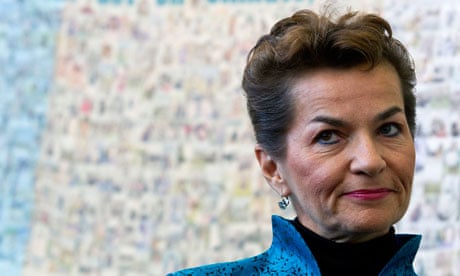What is the Cancún COP16 climate change summit?
From 29 November to 10 December, environment officials and ministers will meet in Cancún in Mexico for the UN climate change conference to continue efforts towards an international deal on cutting carbon emissions. They will work on a global agreement to succeed the Kyoto protocol - which came into force in 2005 and commits rich countries to cut their emissions by 2012 - after the talks at Copenhagen last year failed to replace it.
The conference, held at the Moon Palace hotel and the Cancunmesse, will run for two weeks, and is the major meeting in a series of UN conferences aimed at co-ordinating international action to tackle climate change.
What does COP16 stand for and who is taking part?
COP16 is the official name of the Cancún summit, which is the 16th Conference of the Parties (COP) under the United Nations Framework Convention on Climate Change (UNFCCC). The COP is the highest body of the UNFCCC and comprises environment ministers from 193 countries who have met once a year since the 1992 Earth summit in Rio de Janeiro.
COP15 was held in Copenhagen, which saw thousands of diplomats, advisers, campaigners and journalists in attendance, along with heads of state including Gordon Brown and Barack Obama.
Cancún is expected to be much more subdued. No heads of state are expected to attend. The top US negotiator, Todd Stern, has said the meeting would revert to the level of ministers and senior foreign ministry officials.
What was the outcome of the Copenhagen climate conference?
After two weeks of exhaustive talks, world leaders failed to deliver a legally binding commitment to cut greenhouse gas emissions, instead producing just a two-page accord saying future temperature rises should be limited to 2C. It was merely "recognised" by governments. Significantly, there was progress on a scheme to pay developing countries for keeping their forests to reduce emissions, and $30bn (£19bn) in climate was promised for 2010-2012, rising to $100bn (£63bn) annually by 2020.
What are the hopes for the Cancún meeting?
Expectations for the meeting's outcome are not high. Several key players have gone on record saying they do not expect a binding deal this year, including UN secretary-general, Ban Ki-moon; the EU commissioner for climate action, Connie Hedegaard; and executive secretary of the UNFCCC, Christiana Figueres.
Figueres's predecessor, Yvo de Boer, said in March the challenge for Cancún would be to transform the Copenhagen accord into a "functioning architecture" – in other words, it is hoped the negotiations will set the basis for a new climate change treaty at further meetings in 2011.
It is hoped that piecemeal progress will be made in the areas of transferring financing and technology from rich to poorer countries..
What are the key sticking points?
One of the major issues is still that of "burden-sharing". The least-developed countries, small island states and African countries, will need to feel confident that an agreement is going to help them. Wealthier nations are expected to take responsibility to help fund developing nations to advance green technologies and a sustainable infrastructure. Industrialised countries will also need to show leadership by reducing their emissions at home.
Questions loom over the governance of funds. At Copenhagen, developed nations pledged to provide $30bn (£19bn) in financing by 2012 to help poorer nations solve the problems caused by climate change, with a total $100bn (£63bn) by 2020. Developing countries set to receive the aid will want to hear at Cancún that the money will be channelled through the UN, rather than the World Bank. There are also continuing concerns over enforcing the Copenhagen promise that climate aid will separate from existing international aid.
Are there any reasons to feel optimistic?
A few. Negotiators may well benefit from a subdued tone at Cancún. As leaders have been working to temper expectations, envoys will be under less pressure to deliver dramatic outcomes.
Negotiators from the developing world look poised to make the most of the talks. For example, "Redd" forestry talks have been progressing well, says Brazil's ambassador for climate change, Sergio Serra, who hopes it will help fund safeguards to prevent further deforestation in the Amazon.
Who are the key players to watch out for?
Christiana Figueres, the executive secretary of UNFCCC.
Mexico's chief delegate, Fernando Tudela, who is hoping for a "spectacular breakthrough".
The influential "Basic" bloc (Brazil, South Africa, India and China). A gravitation of countries to Basic could undermine the G77, whose Yemeni chair, Abu Bakr al-Qirbi, is seen as weaker than his Sudanese predecessor, Lumumba Di-Aping.
Dessima Williams, who chairs the Alliance of Small Island States (Aosis) and Bruno Tseliso Sekoli, spokesman for the Least Developed Countries (LDC) bloc.
Connie Hedegaard, EU climate action commissioner, who is "not too optimistic" about the state of negotiations.
Xie Zhenhua, China's lead climate official, who wants to see developed countries "do more and do better".
Todd Stern, the US special envoy for climate change. The second biggest carbon polluter (after China), the US has been unable to pass domestic legislation committing itself to any cuts whatsoever, and wants to build on the Copenhagen accord.
What will happen after Cancún?
The Indian environment minister, Jairam Ramesh, announced in September that the focus was already "post-Cancún" and de Boer has said he thinks a final agreement can be made at COP17, which will be held in South Africa in December 2011.
However, any potential deal struck in South Africa would be unlikely to be a magic bullet for tackling climate change. Figueres believes a single, definitive and all-encompassing deal is unlikely to happen in her lifetime.
Ultimately, governments may need to address divisions over the question of extending the Kyoto protocol if no new treaty is reached by its 2012 expiry. If a new treaty and an extension of Kyoto fail to materialise, it is quite possible there will be a period without any global commitment to cut emissions.
